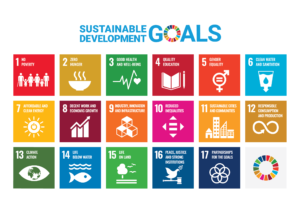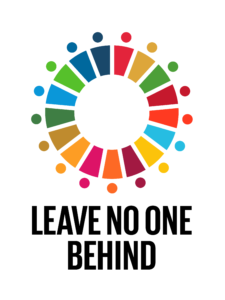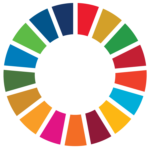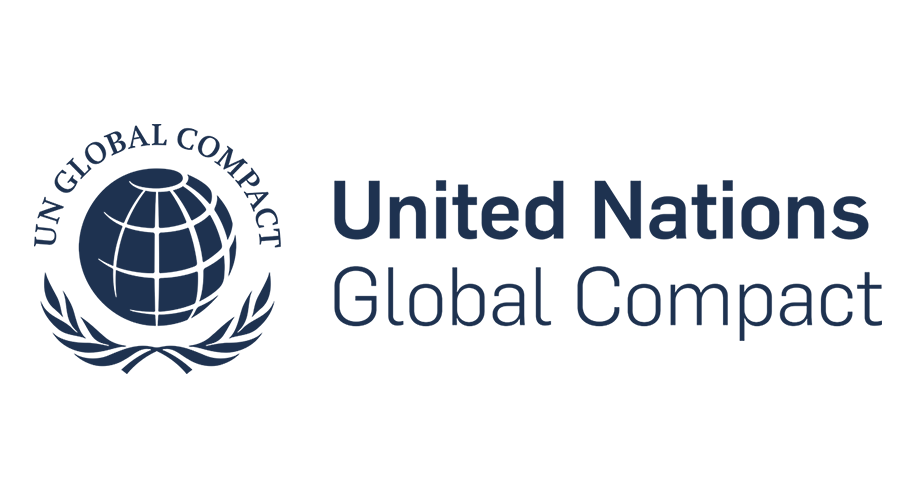Transforming Our World
The Posner Center Community of organizations and individuals works collaboratively toward achieving the sustainable development goals laid out by the United Nations. With a shared vision of a more equitable and prosperous world, the Posner Center and its Community are making impacts across the Sustainable Development Goals (SDGs), both around the world and right here in our home community of Denver, Colorado.

The 2030 Agenda for Action
The SDGs provide a common international framework for concrete action for achieving a more efficient, equitable, and balanced planet.
Adopted in 2015 by 193 countries, the 17 goals have 169 targets and are part of the United Nations sustainable development agenda aimed at ending poverty, protecting the planet, and ensuring prosperity by 2030.
The 2030 Agenda for Sustainable Development, otherwise entitled Transforming Our World, focuses on 17 goals and the interactions among them. These range from economic growth and sustainable cities to gender equality and zero hunger. Though the list seems broad and interdependent, the UN identified specific targets for each goal in order for them to become more tangible and more “actionable.” Combined, these goals and targets undertake the most pressing issues faced by people, nature, and the interaction between the two.
Leaders, innovators, and change agents around the world are also using this global framework as a local agenda, taking action to make sustainable development a reality in their own communities, given their unique needs. You’ll see this at the Posner Center, where our members are leading innovative efforts to build sustainable societies, here in our Colorado communities, as well as in communities around the world.
Interdependence of Development
Compared to the Millennium Development Goals, the 2030 Agenda has a large focus on the interdependence of development. It has been clear in the past that while resolving one issue, many more arise from that very solution.
 The 2030 Sustainable Development Goals (SDGs) intend to rid of this vicious cycle of trade-offs to instead find solutions that generate co-benefits to remove the negative impacts of these tough decisions. In the past, efficiency now has been prioritized over equity in the future – the Sustainable Goals hope to mitigate this untenable version of development and thus create a sustainable model.
The 2030 Sustainable Development Goals (SDGs) intend to rid of this vicious cycle of trade-offs to instead find solutions that generate co-benefits to remove the negative impacts of these tough decisions. In the past, efficiency now has been prioritized over equity in the future – the Sustainable Goals hope to mitigate this untenable version of development and thus create a sustainable model.
Due to the alarming levels of inequality and the irrevocable changes to our planet, these goals are more important than ever. If these targets are met by 2030, the world will have paved a viable path to the salvation of our natural environment and the assurance of well-being of all. The SDGs provide a foundation for better responding to and recovering from the COVID-19 pandemic while building an inclusive, resilient future where no one is left behind.
Connecting the Goals through Underlying Systems
Focusing on the interlinkages between these goals, the UN Member States also identified six entry points through which these goals are connected and how they could be achieved. They don’t simply clump goals together, but rather emphasize the underlying systems to which all 17 goals are connected.
The six entry points are:

- Human well-being and capabilities
- Sustainable and just economies
- Food systems and nutrition patterns
- Energy decarbonization and universal access
- Urban and peri-urban development
- Global environmental commons
These entry points function as a path to how the goals can be achieved. They have a broader and more interconnected focus which enables companies and organizations to implement solutions across the goals, rather than specifying one. The entry points create an easier way for organizations to begin to solve these pertinent global issues.
Video Gallery:




Related Articles:




